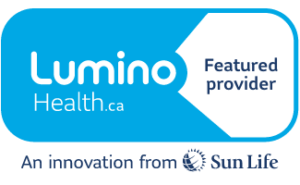ADHD can feel like a roadblock in the workplace. But what if the traits you think of as challenges could actually be your greatest strengths?
We sat down with Springboard ADHD Coach, Stephanie Potter, who often supports clients navigating career-related questions, to explore how ADHD can shape a career path–not as a hurdle, but as a foundation for success. With two decades of experience across health and wellness, education, financial services and human resources, Stephanie brings a wealth of insight into the unique challenges and strengths that ADHD can present in the workplace.
From navigating career pivots to debunking myths about ADHD, Stephanie shares her approach to uncovering strengths, building sustainable career paths, and helping clients find clarity and confidence at work. Whether you’re struggling with burnout, self-doubt, or just feeling “out of sync” with your job, this conversation is for you.
Q: What drew you to work with people with attention-deficit/hyperactivity disorder (ADHD)? How has your background across different sectors shaped your approach?
Stephanie: I was drawn to work with people with ADHD as I have witnessed the unique struggles that they face. I have seen individuals faced with academic and professional hurdles, social and emotional upset and denigrating self-talk. I have seen how an individual’s negative self-concept can influence the decisions they make. My work in different sectors – human resources, health and wellness and education – has encouraged me to look at the whole person; to consider their strengths, their values, what’s working and not be drawn into deficits – ironic as ADHD is called Attention-Deficit/Hyperactivity Disorder. I’d rather explore what’s there to celebrate and build on individual strengths in an appreciative way.
Q: Your bio on the Springboard Team page mentions “celebrating strengths” – can you share a time when a client discovered an ADHD trait that became an asset in their career?
Stephanie: In my experience many clients with ADHD have become so caught up in their weaknesses that they have difficulty recognizing their own strengths. With that in mind, I work with them to identify their unique strengths and familiarize them with them. Where do their strengths show up? What do they look like in balance?
Through our sessions, one client in particular came to recognize the strengths of: spontaneity, humour and emotional sensitivity but ultimately it was his knack for problem solving which really served him well in the workplace. He was able to spot a problem and evaluate it from various angles, often angles that his colleagues hadn’t thought of. This talent benefited both him and his team. His capacity for brainstorming and innovative thinking were highly valued and he sought out roles where these skills were advantageous.
Q: What’s one misconception people have about ADHD that you’d love to debunk?
Stephanie: People with ADHD are just lazy. This is a myth.
Symptoms of ADHD result from messages in the brain not being transmitted effectively. A person’s level of interest in a task has a direct impact on the strength of the message. When a task is of high interest, the messaging will tend to be strong prompting an individual to be highly motivated to complete the task. Conversely, when a task is of low interest, the messaging will be weak resulting in low motivation and an insufficient drive to act. This inconsistency can be confusing for someone unfamiliar with ADHD and it can lead them to perceive an individual as lazy. For people with ADHD, medication and behaviour modification can help address these variations and ultimately improve the message strength.
Adapted from “ADHD is just an excuse for laziness.” Thomas E. Brown, Ph.D.
Q: Many of our clients are navigating big questions about what they want more of or less of in their lives. How do you help them uncover that clarity?
Stephanie: I work to be a keen and curious observer who asks provocative questions. One question I asked a recent client was: how is skepticism serving you? This client regularly exhibited a trait of rationality which when used in balance is one of his superpowers. Yet, when he overused this trait, he became overly skeptical which was getting in the way of positive perspective taking. By increasing his awareness of this, we could then collaborate on choosing a more balanced approach.
Some clients need time to expand their self-awareness before they can get clear on how they want to show up. Asking open-ended questions can help clients gain clarity. My goal is to always champion my client’s strengths but sometimes I need to hold up a mirror and state what I am seeing or experiencing in my interactions with them. Blind spots are exactly that, frequently not seen by us.
Q: What’s one piece of advice you always give ADHD clients preparing for interviews? Do you have advice for navigating conversations about accommodation or career changes in the workplace?
Stephanie: Be Early. Be Prepared. Be Committed. These three actions have helped serve my clients in preparing for interviews.
- Be Early. Some people with ADHD struggle with time management and being punctual can be a challenge. Pre-planning where you need to be and by when is crucial. The saying, “You only get one chance to make a good first impression, ” is so relevant here. Being early sets the tone for what comes next and there’s no sense in commencing an interview with one strike against you before you’ve even opened your mouth.
- Be Prepared. Take the necessary time to research the company, understand the role, familiarize yourself with the person who’s interviewing you. Research common interview questions. Many job-specific interview guides can be found online. Ensure you are confidently able to answer questions like: What are your strengths, weaknesses, skills aligned with this role etc. When asked a question, pause and then provide a specific and recent example that demonstrates your experience. Interviewing is like a muscle that requires practice. Take advantage of friends and/or family members. Ask if you can role play Interview Questions with them in advance of your interview date.
- Be Committed. Your overall affect is as important as the words you use to answer an interviewer’s questions. Your energy, your mindset and your enthusiasm should be evident. If you’re skeptical, a good interviewer will sense this. Positive affirmations prior to an interview coupled with some jumping jacks (no, truly) to get the blood flowing are all helpful strategies to set you up for success.
Q: What kind of systems or tools do you recommend for staying on track in a fast-paced work environment?
Stephanie: There are many systems and tools that can help clients stay on track, yet every client is unique. Some clients I work with like online tools/apps while others prefer pen and paper. I initially work to establish where clients have had success in the past: productivity apps, to do lists, whiteboards. Once a preference is identified, I then encourage the client to USE the system. In my experience, clients are typically good at getting started with a new system but sticking with it tends to be more challenging.
I also work with clients to establish the best time of day to use the system. This may take some trial and error. For example: A Daily Pen and Paper Task List – Date at the Top of the Page. Some clients find that reviewing their Task List first thing in the morning helps to set the tone for the day. Others find that reviewing their Task List at the end of the day sets them in good stead for knowing what the next day has in store. I recommend picking a time and testing it out consistently for a couple of weeks. If the time of day isn’t working after 3-4 weeks, I would try another time of day – sticking to the same system just moving the tracking to a different time. If it still isn’t working at the new time of day, I would then suggest trying a new system. What is important to emphasize is that there is no one size fits all approach, systems take adherence and refinement to ultimately lead to success.
Q: Your approach blends compassion, curiousity and creativity – what does that look like in a typical coaching session?
Stephanie: I too am human. My compassion stems from the fact that I too have my own struggles and my own idiosyncracies which impact how I navigate in the world. During each session, I honour this fact. As a coach, I am a collaborator and a thought painter; I trust that my client is the authority on his or her life and that I am the authority on the coaching process. My client knows more about their life than I do as they live it every day – their experiences are their own. This construct is not meant to intimidate my clients, rather to give them agency. How they feel about these experiences is what matters most and that is what I get to get curious about.
I employ various approaches in my sessions to build trust and rapport, peeling back the layers and working to truly see my clients. This may involve exploring a metaphor a client uses regularly like, “I feel like I’m behind the eight ball.” What’s the eight ball? Where is it? How does it feel to be behind it? Where would you rather be? I may also ask them what image comes to mind when they are describing something. Suspending my thoughts about the situation to truly understand it from my client’s vantage point is crucial. It’s their story not mine.
Q: What’s one small, actionable habit someone with ADHD can try this week to feel more in control of their time or energy?
Stephanie: I would say habit tracking. So often clients are not aware of where their time goes, but they say it flies. Encouraging them to track their habits/behaviours is a good place to begin. Tracking for a week provides a baseline for them and their coach which can then be used to design actions and make change. Habit tracking can lead to an increased awareness of a client’s ability to estimate time, prioritize tasks and establish when they are most productive. This baseline can serve to increase a client’s awareness of how they are spending their time, which can be a launching point for making new, more intentional choices.
ADHD isn’t a barrier to a successful career – it’s a different way of thinking, creating and working.
A huge thank you to Stephanie for sharing her wisdom and practical advice. If you’re feeling stuck or unsure about your career path, remember you don’t have to go it alone. Whether you’re looking to pivot, build new systems, or just find more balance, career coaching could be the support you need to start creating a work life that truly fits you.
Want to explore more? We’re here to help.
Springboard Clinic offers in-person and online personalized ADHD assessment and psychoeducational assessment in Oakville and Toronto as well as ADHD coaching and therapy services for children, teens and adults, helping them embrace their unique strengths and thrive at every stage of life. Book a call with our team to learn how we can support you or your family.




